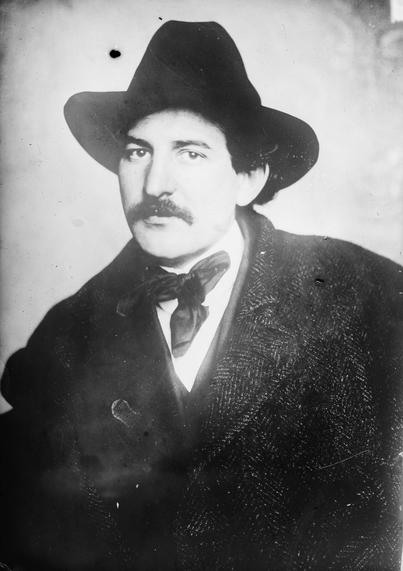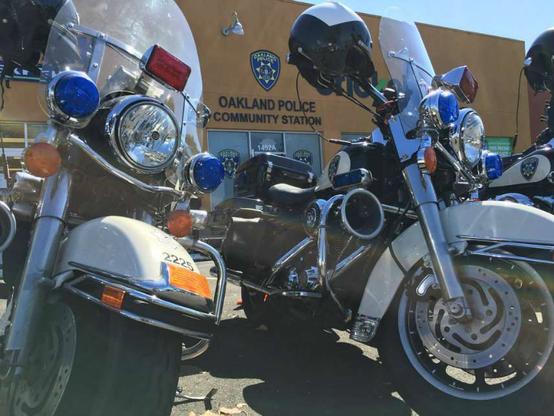Fansly.com
My life with four stone O-Cup breasts that won’t stop growing
Today in Labor History November 17, 1942: Ben Reitman, hobo organizer, anarchist and one-time lover of Emma Goldman, died. Reitman served as a doctor for hobos, prostitutes and the downtrodden. He participated in numerous free speech fights and anarchist causes, getting beaten, tarred and feathered, jailed, and run out of town for his troubles, most notably during the San Diego free speech fight. He also wrote the book, “Boxcar Bertha.”
#workingclass #LaborHistory #anarchism #benreitman #EmmaGoldman #doctor #sexwork #poverty #homeless #freespeech #books #novel #writer #author @bookstadon
On #sexwork as the Epstein situation detonates: If someone tries to say that ALL sex work is exploitative, their argument fails on the keyword ALL, as it is only necessary to find one sector of the sex industry where that is not the case to disprove. Exhibit #1, my own experience selling sex in the 1980's and a bit later.
I used to sell sex myself when I was younger. I will speak here from firsthand experience and the culture I was part of.
Gay and Bi guys selling sex to older Gay men were known as "hustlers," we were known for a very independent culture and didn't take any shit from anyone. Someone like Epstein trying to put us in situations we didn't sign up for such as "not free to leave," would have quickly risen to the top of informal bad date lists and quite possibly would have been put in the hospital after being jumped.
We were all quite capable of defending ourselves and oneanother, this was part of the culture. We even managed to deter a Reagan administration FBI and police raid on all the DC Gay strip and sex clubs in 1984 after the Washington Blade got wind of it and published a warning. We prepared to meet the raids head-on, they were a no-show.
I think the difference may have been that a fake "daddy-child" relationship did NOT play well with Gay youth who so often had to bail out of homes where parents tried to have them institutionalized, or had been thrown out outright. This ensured that even the guys engaged in "survival sex" were as far as anyone could tell in the 1980's independent operators. Then there were those like myself that had deliberately chosen the sex trade as an alternative to conventional employment. I was later a bicycle messenger but that;s another story entirely.
As an otherwise unemployable autistic and (this is important) aromantic Bi guy, being able to sell sex as an artisan was a real problem solver for me at the time. For me, sex never carried any emotional baggage so this was purely physical and social. The pay was much better than anything else I could have gotten, and the hours it used could be dual-purposed with looking for my own recreational sex parters.
Never have I regretted it. Yes, the "hustler" culture was completely different that what those women who worked for pimps had to deal with. Women who worked for themselves in some places (notably California) were known on the street as "outlaws," a name borrowed from us and which you will see references to in John Rechy's hustler novels set in the pre-Stonewall era.
Even clubs acted differently. One time I was dancing at the Follies, and one of the other go-go dancers had his girlfriend over who worked at a nearby club. We could pick up nights when we wanted, got 100% of our tips and $25 minumum from the house on top of it as a hedge against slow night. She by comparison had to pay a "stage fee" of $200 before her first dime! Yes women make a lot more money than guys in stripping, but here's the thing. A snowstorm or similar circumstance can keep the club empty, and women lose money when that happens. We didn't.
The reason why was we were very capable of acting as a union would in the face of exploitative crap. A club tried to get control of us once, the result was a dancer's strike, an empty club-and a fired manager. A new manager with zero understanding of hustlers who tried to "clean up the club" was the blamed culprit in this. Although he was gone in a week, it took a year for the Chesapeake House to regrow its clientele. Others no doubt learned from this.
A note on stripping: if you are selling sex, it's a great advertisement, but johns usually didn't want to hang out to half an hour after closing while we cleaned up the club. When you were done with a week or two of this, you found both customers and recreational partners easier to find for months. I doubt this has ever changed though at this point I cannot say for sure.
Again, I am aro Gay culture bi, so that's my perspective on all of this. I would recommend that those for whom sex carries strong emotional baggage avoid selling sex unless they have no other choice and carefully consider their own reactions before buying sex as well.
For me, I was just adding a few extra partners to an already very promiscuous sex life to pay the bills or even subsidize getting into the places I met my own partners.
If there is a Hell, Epstein is probably getting fucked with a barb wire dildo there for what he did to girls who may have had no intention of ever selling sex at all, and to those who thought they were signing on for situations they could control and found themselves trapped.
Epstein was a pimp, and Trump is a rapist not a john.
See also:
#CelesteGuap #OaklandCA #OPD #sexwork #hypocracy #ACAB
Flashback (7-13-2017)
"Damning New Report Shows How Oakland Cops Covered Up Their Sexual Exploitation of a Minor
Making matters worse, the report concludes, was 'the tone at the top.'
While Kamala Harris was bringing trumped-up child-exploitation charges against a classifieds website, a cadre of California cops was actually paying, pimping, and passing around an underage girl for sex and getting away with it. A damning new report explains the extent that the Oakland Police Department (OPD) was involved with the girl, who goes by the pseudonym Celeste Guap, and also details OPD leadership's myriad attempts to make the scandal disappear."
https://reason.com/2017/07/13/oakland-police-corruption-comes-out/
(. . .)
Introduction and Literature
Review
Sex Work and Labor Trafficking
We begin from this premise: under capitalism, all labor is vulnerable to hyper-exploitation. The risk of exploitation is increased in criminalized economies that lack labor protections, such as sex work. Many individuals who
have traded sex live at the intersection of marginalized identities and may
have limited access to other sources of income or employment due to stigma, discrimination, and lack of social support. In this way, sex workers face
a similar risk of exploitation, as do undocumented laborers who perform domestic and agricultural work.
(. . .)
The United States government has attempted to protect individuals from sexual exploitation through anti-trafficking legislation. In the United States,the Federal Victims of Trafficking and Violence Protection Act (TVPA) of 2000 defines trafficking as 'the recruitment, harboring, transportation, provision, or obtaining of a person for the purpose of a commercial sex act.'
The TVPA does distinguish this from 'severe forms of sex trafficking' by stating that it is '(A) sex trafficking in which a commercial sex act is induced
by force, fraud, or coercion, or in which the person induced to perform such act has not attained 18 years of age; or (B) the recruitment, harboring, transportation, provision, or obtaining of aperson for labor or services, through the use of force, fraud, or coercion for
the purpose of subjection to involuntary servitude, peonage, debt bondage, or slavery.'
Under these two definitions, any and all persons who trade sexfor money may be considered 'trafficked,' irrespective of the circumstances under which they engage in this work. In addition, any individual under the age of 18 who is involved in commercial sexual activity is defined as a victim of sex trafficking, regardless of how the individual defines their experience.
Many individuals who have histories of trading sex as a minor do so to acquire needed resources and to escape abusive living situations, facing an explicit external force, fraud, or coercion, other than the need to survive. LGBTQ youth, who often face housing insecurity due to familial rejection,are seven times more likely to have experiences of trading sex for a place to stay than their heterosexual counterparts. These individuals are labeled trafficking victims by the state and processed through the criminal justice systems or family court systems under the 'safe-harbor' laws. The singular focus of the anti-trafficking lobby on sex trafficking has been criticized for ignoring the complex forms of labor trafficking that occur in other labor sectors that outnumber cases of sex trafficking. The fact that those experiencing labor trafficking in any industry are also more vulnerable to sexual abuse, with no legal recourse, is also highly overlooked.
https://hackinghustling.org/wp-content/uploads/2020/02/Erased_Updated.pdf
I’m a 6ft 9in giantess — I made a career out of making men feel small




